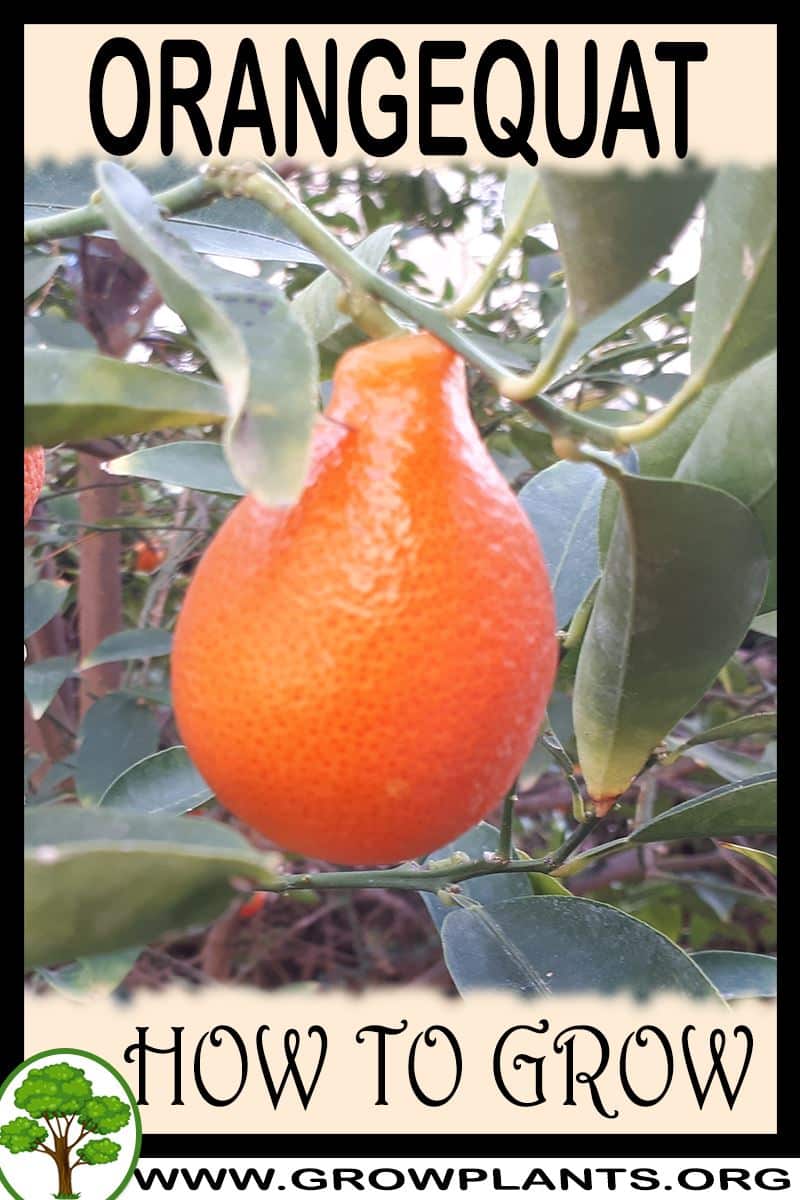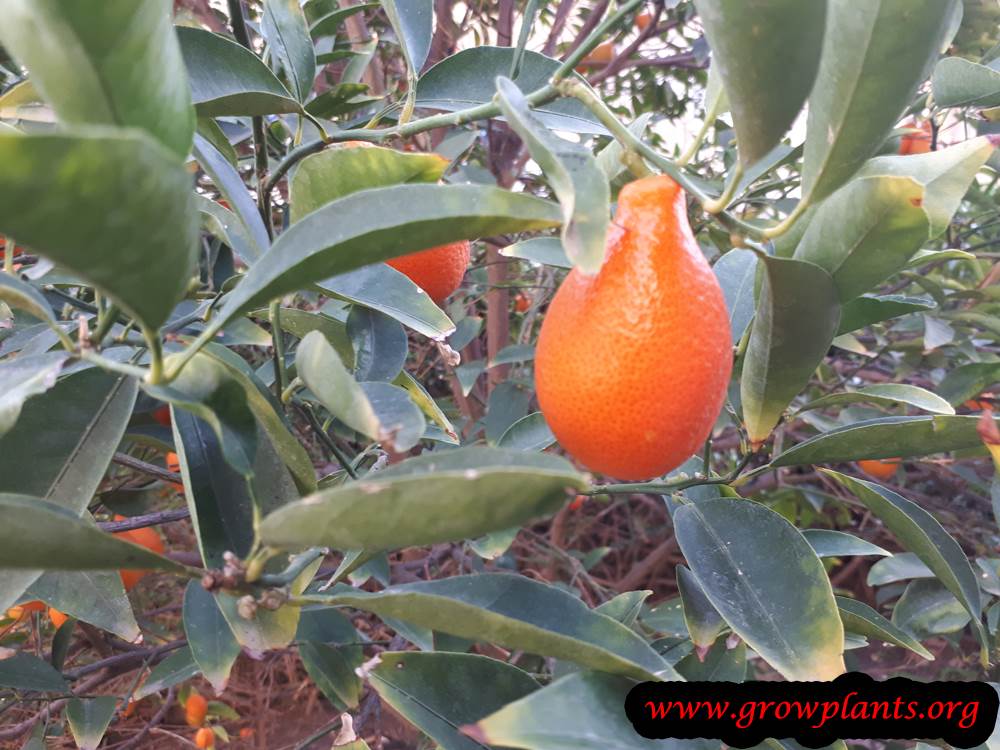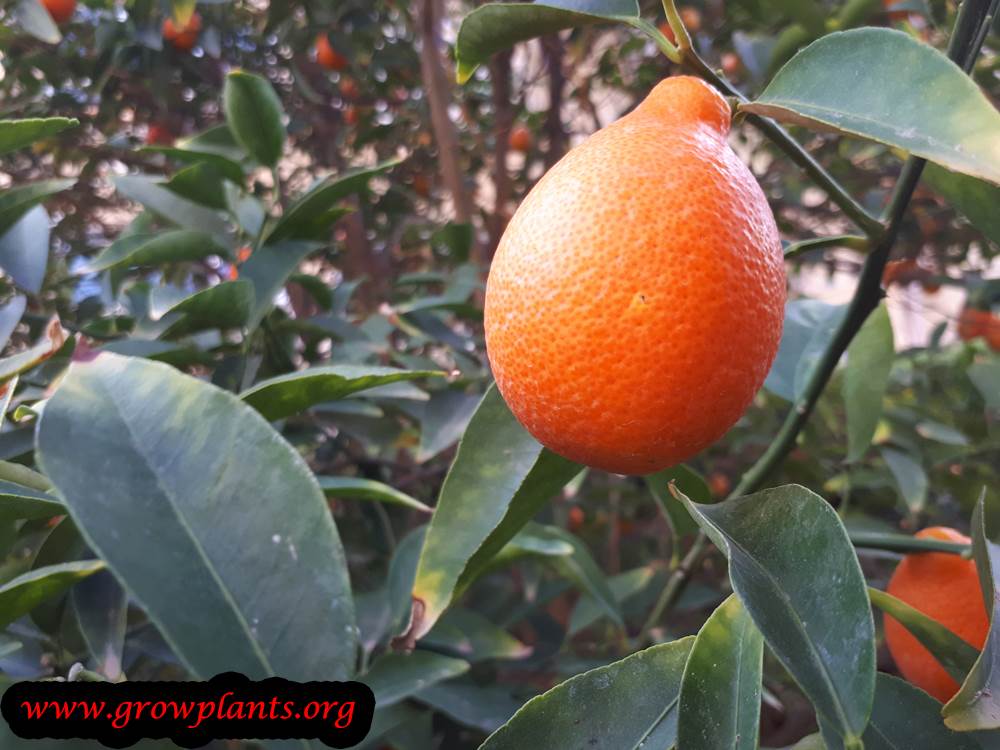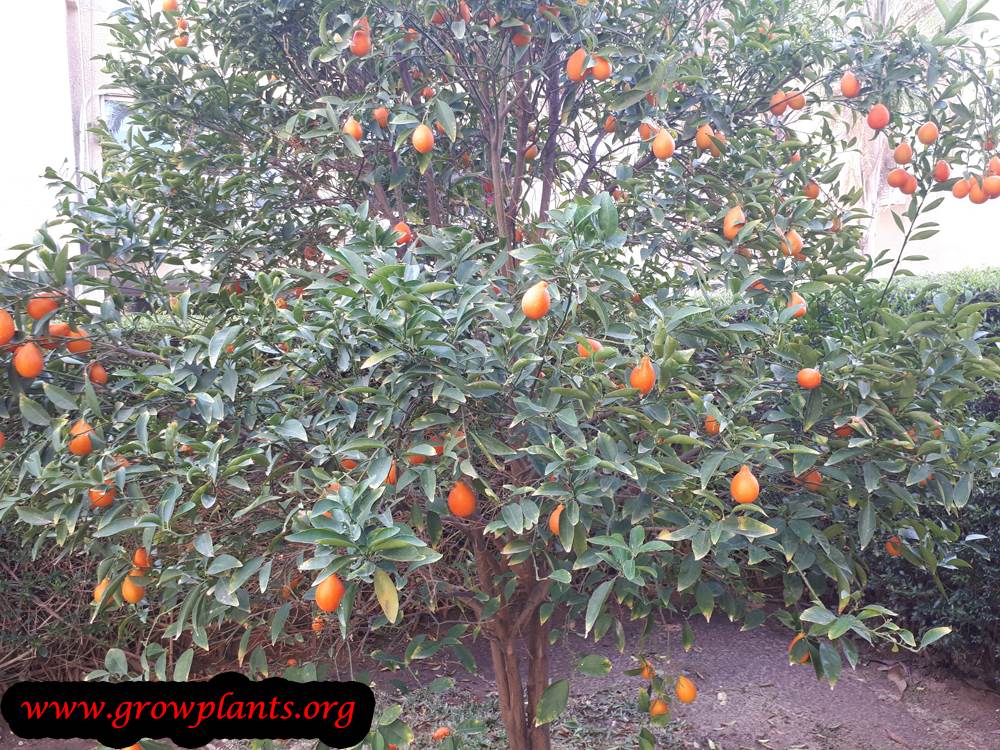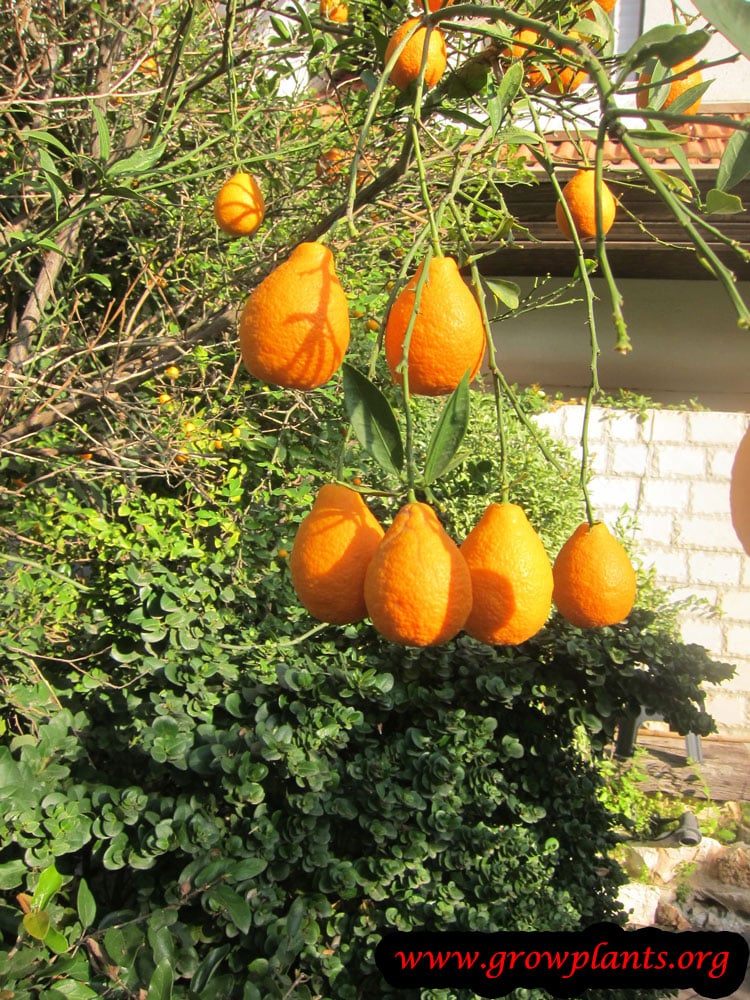Orangequat tree grow and care – tree of the genus citrus also known as Nippon Orangequat or Naranjaquat Orangequat grow as shrub or tree perennial evergreen plant, grow for edible fruits, can be used also as ornamental plant and can grow as dwarf tree or bonsai, can grow in subtropical or mediterranean or temperate climate and growing in hardiness zone 9-12, and with the right overwinter care in hardiness zone 8.
Leaves color green in elliptic shape can be with thorns.
Flower color white petals and yellow stamen with five petals.
Orangequat tree edible fruits
Fruit color orange in bell to drop shape, taste sour with little bit bitter, fruit size ~2 -4 cm and. The inner fruit divided by segments, the segment cover with soft thin layer, it containing the pulp (little cones covered with a thinner layer), peel color orange and also edible eaten raw, also used as flavor and fragrant
Orangequat for sale – Seeds or Plants to Buy
How to grw Orangequat growing and care:
Well-drained soil, better loamy soil, moist soil in the fruits season and better to put mulch
How to care:
Design for easy to pick the fruits (when there are thorns it’s important but not all cultivars have thorns), add to the soil, organic matter, humus and fertilizer, in location with hot summer sun that the main trunk is expose to the sun better to better to whitewash (lime paint)
What is the best way to start growing:
Plant / Seed / Cutting / Air layering
Is it necessary to graft or use vegetative reproduction??
Yes, necessary to ensure the existent of the fruits and quality of the fruits and better to graft more than one cultivar or more than on citrus.
Cutting need to use for the base of the tree for: disease-free, base that fit for different soils, resistance for drought, base that won’t resist for grafting.
Difficulties or problems when growing:
When the tree young very sensitive to citrus leaf miner, thorns
Planting season:
Spring to summer in hardiness zone 8-10a, spring or autumn hardiness zone 10b-11a, possible also in summer and winter the main problem it’s hot and cold days that might cause future problem and even kill the plant, hardiness zone 11b+ planted all year
Pests and diseases:
Citrus leaf miner, aphids, citrus foot rot, ant, citrus gummosis
Pruning season:
When there is no fruits on the branch
How to prune:
Dead branch, cross branch, too much density
Size of the plant?
1-4 m, (3-12 feet)
Growth speed in optimal condition:
Medium growing
Water requirement:
Average amount of water, usually the plant need more water in the fruits season, but usually it’s when there are rains and if raining season delay need to increase the amount of water that the fruits won’t be dry and won’t explode.
Light conditions in optimal condition for growing:
Full Sun and possible to grow in half shade in the right care but will produce less fruits
Is it possible to grow indoor as houseplant?
No, but possible to grow next to window with sun that possible, grow it as dwarf tree and will take more time to get fruits
Growing is also possible in a planter /flowerpot / containers:
Yes, when grow in container need to make or take dwarf tree or bonsai, even bonsai can bear fruits, need to use potting soil or mix of peat soil with perlite, drainage and holes in the pot important, don’t let the water stand in the bottom of the pot, need ever few years to switch the soil of the pot and better to start with pot that will be 20% bigger than the roots ball and every time to change it with new soil, no point that the soil will stay in the pot for no reason just lose the viability
Blooming information
Bloom season:
Summer / Autumn
General information about the flower
White petals with yellow stamen
Thinning the bloom:
The first year should thinning the flowers
Pollination is done by:
Bees, self polination
Edible Fruits
Fruit harvest season:
Autumn / Winter
Fruits pests or diseases:
Citrus stubborn disease, citrus black spot, Alternaria
What can be done with big quantities of Orangequat fruits?
Eat, juice, peel used as: fragrant, fruit leather, sugary peel
Work requirements on the fruit:
Pick up (sometimes cut brunches that grow into the fruit)
How long does it take to bear fruit?
1-3 years
Ripening of fruit
Possible to pick up the fruit before and let them ripening them in the house
How to grow Orangequat tree from seeds
Sowing requirement:
Moist soil, well-drained soil, 20-27C temperature and better in sunny location
Saving and care seeds until sowing:
Dry, dark location in room temperature
Sowing season:
Spring to early summer (possible also summer to autumn)
How to plant:
Planting in soil that keep moist, cover the seed lightly
Planting spacing:
Better in separate pots, direct on the place 3*4m (10*13 feet), for transplant 5*5 cm (2*2 inches)
Depth of Sowing:
2cm (1inches)
Conditions for seeds germinate:
Keep the soil and don’t let it dry, rich soil and sunny location
Watering requires for Seeds:
Average amount of water
Germination time:
2-4 weeks, but can take longer
Condition of seedling:
If there is Citrus leaf miner in one of the trees in the area, better to put it in greenhouse or indoor to protect the tree, young tree very sensitive to citrus leaf miners, better to cover the soil with mulch.
Scientific name:
Citrus japonica
Categories
| Blooming Seasons |
|
|---|---|
| Edible Parts |
|
| Culinary uses |
|
| Flower colors |
|
| Climate |
|
| Harvest Season |
|
| Ornamental parts |
|
| Plant growing speed |
|
| Plant life-form |
|
| Plant Uses |
|
| Planting Season |
|
| Plants sun exposure |
|
| Watering plants |
|
| Hardiness zone |
|


